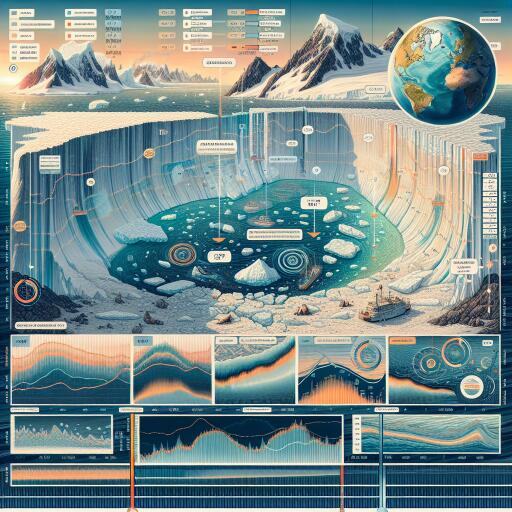
Historical analysis of Antarctic current reveals climate change impact and future risks
In a groundbreaking study pointing to the significant consequences of climate change, researchers have honed in on the Antarctic Circumpolar Current (ACC), a major player in the Earth’s climate system. The ACC, a vast, powerful current encircling Antarctica, has been shown to have undergone dramatic changes in velocity in response to climate shifts, with profound implications for both Antarctic ice melt and global climate patterns.
The development of the ACC, tracing back approximately 34 million years ago, commenced with Antarctica’s geographic isolation. This isolation set the stage for the current’s robust, clockwise flow, driven by relentless westerly winds. Covering great distances at speeds of up to 2.5 miles per hour, the ACC now faces an era of intensification. Recent analyses indicate a sharp 40% increase in the strength of the Southern Ocean’s winds over the past four decades, propelling the ACC to swifter velocities. This escalation in speed is delivering warmer waters to the fringes of Antarctica, primarily affecting the western ice shelves, hastening their melt rates in a worrying trend linked to global warming.
At the heart of the matter are the potential ramifications of an invigorated ACC. Enhanced currents ferry more warm water to Antarctica’s vulnerable ice shelves, accelerating their decline. This not only contributes to the elevation of global sea levels but also casts a shadow over the future role of the Southern Ocean in trapping atmospheric carbon. A sped-up ACC might diminish the ocean’s ability to act as a carbon sink, a crucial buffer against climate change.
The insights derive from an ambitious international collaboration, involving around 40 scientists from a dozen countries, who braved the severe conditions of the Southern Ocean’s winter to gather data. Aboard the research vessel, scientists drilled into the ocean floor beneath the ACC to extract sediment cores. By examining the size distribution of particles in these cores, the team was able to infer historical variations in the ACC’s speed over millions of years. Their findings confirm a direct correlation between global temperatures and ACC velocity, correlating faster currents with periods of increased temperatures and corresponding retreats of the West Antarctic Ice Sheet.
This geological evidence underpins predictions that the ACC’s flow is likely to keep accelerating with ongoing global warming, a trend that recent observations have confirmed. Such changes beckon a need for a deeper understanding of the intricate interplay between ocean currents, climate shifts, and ice dynamics. The implications of a faster ACC highlight the urgent necessity for comprehensive strategies to address the intertwined challenges of climate change, ocean dynamics, and ice melt, critical factors in the global environmental outlook.





Leave a Reply